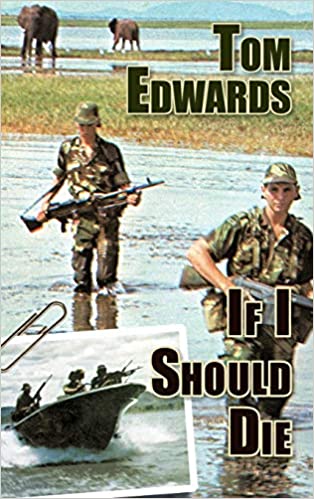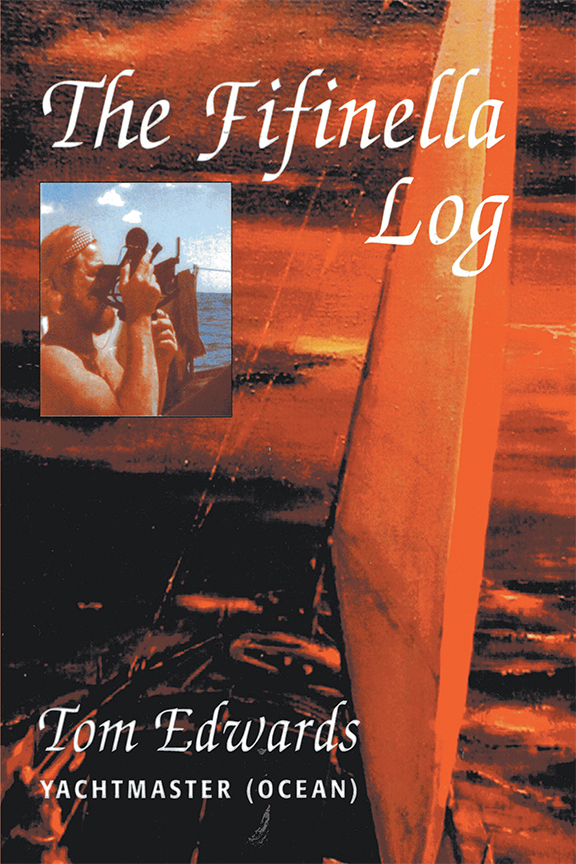If I Should Die

This is a story of Africa, shown at its cruelest and most tender moments. It is also a story of violence set against the breathtaking beauty of the land, where cicadas sing their interminable song, and elephants gambol in mud holes.
It is a story of vengeance and endurance, not about black versus white, but of resistance to the winds of change, the drawing in of empires, and the global trend towards righting past wrongs. It is where Sergeant Bob Wilson and his men fight a war they know they cannot win, but fight it anyway, because it is their job.
Appalling events personalise the conflict into a brutal contest between the best man each side has to offer: Sergeant Wilson against Chaka, the leader of a terrorist band. Severely wounded and taken across the border for interrogation, Sergeant Wilson is beyond pain.
Bob’s fiancée Sally Ferguson attempts to discover where he is being held. With the ill-conceived idea of rescuing Bob, she instead finds herself in a life-and-death situation. This is also a story of love and passion.
The novel is unremitting in its action. The truth is, much of this story could easily have taken place in real life. Set in “Nyanga,” a make-believe African nation, those who have been in Africa will know where this country is.
The Fifinella Log by Tom Edwards

The Fifinella Log tells my true story of sailing around the world in a thirty-foot boat for four-and-a-half years. It describes terrible storms and three hurricanes encountered during the voyage, one of which in the Bay of Plenty off the north coast of New Zealand, damaged our boat Fifinella.
During that two-day battle, Fifi lost three foresails, two mainsails, the self-steering vane, reefing pawl, a forestay, and other pieces of equipment, besides broken cupboards, destroyed books, charts, and food stocks.
But it was not all like that. Weeks were spent drifting in the doldrums in energy-sapping heat, where you burnt above deck and baked below: where you gritted your teeth to cut off sharp retorts, trying to subjugate your anger and frustration to funnel it into positive action.
The good times far outweighed the bad. We experienced the incredible charm of the English south coast, met many wonderful people, and visited exotic places, where we could pick breadfruit, bananas, and coconuts. We traded with islanders and made biltong from horsemeat, and dived and spear-fished our way up the Great Barrier Reef, enjoying the beauty of the Australian coast.
Sailing on my own from Darwin to Durban via Christmas Island, Cocos Keeling, Seychelles, and the Comoros gave me time for introspection; I hope I am a better man for it. We had no fancy equipment, no satellite navigation aids. Our radio was basic and our funds minimal. We had a compass and a plastic sextant, navigation tables, charts, and a star chart. The sea is unforgiving and does not tolerate carelessness or mistakes. Be well prepared.
A World in Crisis

A World in Crisis is set in the year 2060, when the entire world has been plunged into chaos due to one hundred and fifty years of environmental bastardisation.
The testing of atomic bombs brought unsustainable pressures on the earth’s mantle. The disasters of global warming were caused by unparalleled pollution and uncontrolled population growth.
One man rediscovers a long-lost cave deep in the Blue Mountains of Australia and endeavours to isolate himself from the terrors of rising oceans and the chaos of humanity in its death throes. He sets out to record for posterity the events that brought the world to its sorry state.
He describes the inundation by the seas over one fifth the world’s land mass, as well as how earthquakes and tsunamis and volcanoes kill millions. Violence in the streets overwhelms security forces, leaving gangs to rape and kill at will. Survivors wait and pray for the world to return to normality.
A World in Crisis follows up the author’s previous book Lethal Legacy.
Author Biography
Tom Edwards of New South Wales has written sixteen books, five of which have won awards. His motivation for writing this book is summed up in the statement inside the front of the book: “The ultimate test of man’s stupidity is when, in his grubbing for riches, he destroys the environment that sustains him